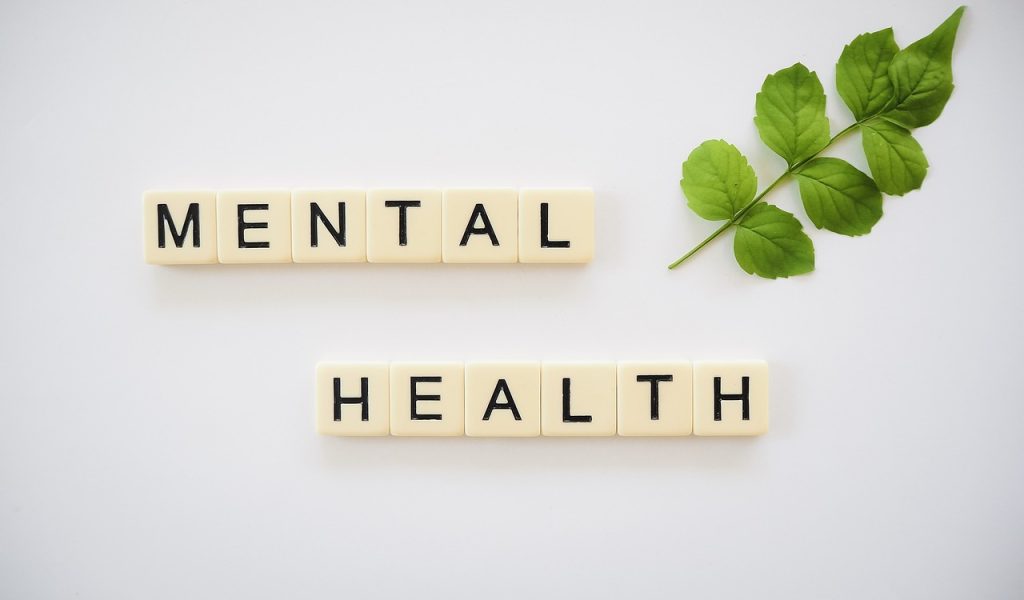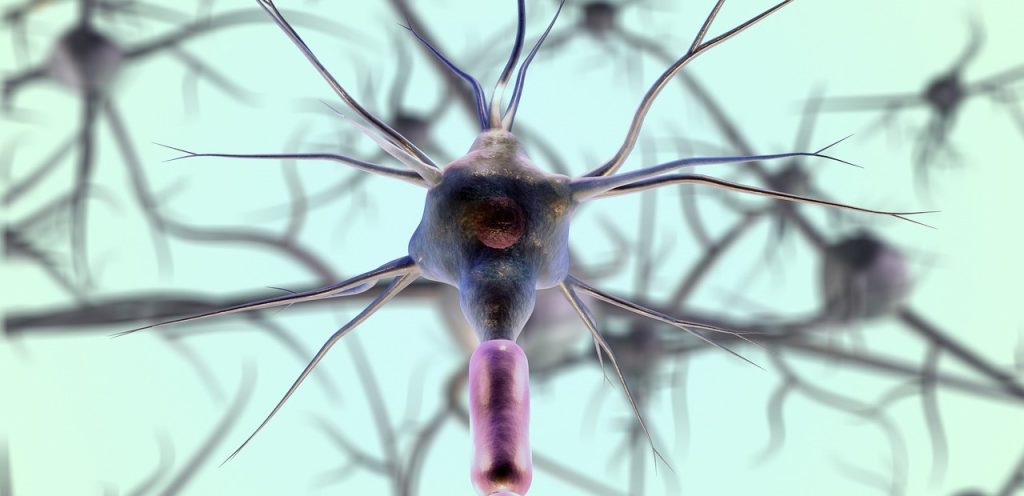How Your Diet Directly Impacts Your Mental Health: A Comprehensive Guide.
Ever thought about how your diet affects more than your waistline? Could the food you eat be the secret to better mental health?
Nutrition and mental health are closely linked, research shows. About 90% of serotonin, key for mood, is made in your gut. What you eat can greatly impact your mental health, affecting mood and thinking.

Omega-3s, B vitamins, and magnesium are key for brain health. Not having enough can lead to depression and anxiety. Eating fruits, veggies, and quality proteins boosts brain health by fighting stress and improving mood.
Poor diet choices, like sugary foods and unhealthy fats, harm your body and mind. They cause inflammation and blood sugar problems, raising the risk of mental health issues.
The gut-brain axis shows how gut health affects your mind. Your gut, with trillions of bacteria, impacts heart disease and mental health. It’s linked to anxiety and depression.
Key Takeaways
- Approximately 90% of serotonin is produced in the gut, linking diet to mood regulation.
- Omega-3 fatty acids are essential for improved mood and cognitive function.
- Vitamin B6 is vital for producing neurotransmitters that impact mood and stress response.
- Magnesium and Vitamin D deficiencies are associated with mental health conditions like anxiety and depression.
- Antioxidants from fruits and vegetables protect the brain from oxidative stress.
The Importance of Diet for Mental Health
Nutrition greatly affects mental health by changing how neurotransmitters work and the brain’s structure. Mental health campaigns stress the need for a balanced diet. A diet full of essential nutrients boosts brain function and keeps emotions stable.
Research shows that better diet choices help mental health. For example, free school lunches reduce food insecurity by 3.8 percent. This is key for low-income students, as it improves their diet quality and mental health.
Studies also link free school lunches to better health. They reduce obesity by 17 percent and poor health by 29 percent. These programs support both physical and mental health by providing vital nutrients for the brain.
Without access to nutritious meals, mental health suffers. Hungry kids do worse in math and have lower grades. Teens who go hungry are more likely to be suspended and struggle with peers. This highlights the need for better food access and support.
Knowing the right foods for mental health is key. Eating 30g of nuts daily can lower depression risk by 17 percent. This is true for people aged 37-73, regardless of other factors. Nuts are packed with nutrients that help the brain.
A diet rich in vitamins and minerals is vital for mental health. Knowing what foods are best can greatly improve your well-being. A healthy diet is a powerful way to care for your mental health.
The Link Between Carbohydrates and Mood
The connection between food and mood is complex, especially with carbohydrates. They are key to brain health and can affect your mood. Knowing how bad eating habits lead to depression can help you choose better foods for your mental health.
Glycemic Index and Mental Wellbeing
The glycemic index (GI) of foods affects your mental health. Foods with a low GI, like whole grains and fruits, release sugar slowly. This keeps your blood sugar steady, helping you stay focused and balanced.
On the other hand, high GI foods cause quick blood sugar changes. These changes can make you feel moody, anxious, or depressed.
- Whole grains like oats and barley
- Legumes such as lentils and chickpeas
- Fruits like apples and berries
The Impact of Refined Carbohydrates
Refined carbs, like sugary snacks and white bread, harm your mood. They quickly raise then drop your blood sugar, leading to irritability and tiredness. Studies link diets rich in refined carbs to more depression and anxiety.
Research in the Journal of Affective Disorders shows a link between ultra-processed foods and depression. The BMJ also found that such diets increase depression, anxiety, and sleep problems. Choosing complex carbs over refined ones can improve your mood.
| Type of Carbohydrate | Examples | Potential Impact on Mood |
|---|---|---|
| Low Glycemic Index | Whole grains, Legumes, Fruits | Stabilizes mood, Enhances focus |
| High Glycemic Index | Sugary snacks, White bread | May cause mood instability, Increased depression risk |
Eating well is vital for mental health. Knowing how carbs affect mood helps you make better food choices. By choosing wisely, you can improve your mood and mental wellbeing.
How Fatty Acids Influence Your Brain
Fatty acids are key to keeping your brain healthy. Omega-3 fatty acids and Vitamin E, specifically alpha-tocopherol, boost brain functions and mental health. Knowing how they work can guide you in choosing the right foods for your brain.

Omega-3 Fatty Acids: EPA and DHA
Omega-3 fatty acids, EPA, and DHA, are vital for brain health. They help cells talk to each other better. Eating fish regularly can increase gray matter in your brain, which is good for thinking, memory, and feelings.
EPA and DHA also reduce brain inflammation and improve mood. Eating enough of these fatty acids can lower depression and anxiety. Since a Western diet might harm brain growth, adding omega-3s is a smart choice for brain health.
The Role of Alpha-Tocopherol
Alpha-tocopherol, a strong antioxidant form of Vitamin E, protects your brain from damage. It fights off free radicals, keeping your brain sharp. This antioxidant helps prevent brain damage caused by inflammation and stress.
Also, alpha-tocopherol keeps your brain healthy. Chronic inflammation and stress, often from bad diets or obesity, can harm your brain. Eating foods high in alpha-tocopherol supports your mental health and fights off brain diseases.
The Role of Proteins in Regulating Mood
Proteins are key to keeping your mind healthy. The amino acids in proteins help make neurotransmitters, which affect your mood. Knowing how these work can help you choose foods that support your mental health.
Amino Acids and Neurotransmitter Production
Amino acids are the foundation of proteins and are essential for making neurotransmitters like serotonin and dopamine. These neurotransmitters play a big role in how you feel. For example, tryptophan is crucial for making serotonin, which helps regulate your mood.
Having enough amino acids in your diet supports neurotransmitter production. This helps keep your emotions balanced.
Sources of Quality Protein
Eating high-quality proteins is vital for getting the amino acids your body needs. Foods like fish, eggs, and legumes offer all the essential amino acids. Eating these can help your brain make neurotransmitters, improving your mental health.
These proteins also help with muscle repair and boosting your immune system. They are essential for a healthy diet.
| Protein Source | Benefits | Key Amino Acids |
|---|---|---|
| Fish | Rich in omega-3 fatty acids, supports brain health | Tryptophan, Lysine |
| Eggs | Complete protein, aids in muscle recovery | Phenylalanine, Tryptophan |
| Legumes | Plant-based protein, supports gut health | Leucine, Isoleucine |
Adding these quality protein sources to your meals gives your body the amino acids it needs. This simple change can greatly improve your mood and mental health.
Vitamins and Minerals Essential for Mental Health
Getting the right vitamins for mental health can really help your well-being. Important vitamins and minerals are key for both physical and mental health.
Folic Acid and Vitamin B Complex
Folic acid and the vitamin B complex are crucial for brain function. They help make neurotransmitters and produce energy, which is vital for mental health. A lack of vitamin B complex can lead to mood swings and serious mental issues. Eating foods high in these vitamins, like leafy greens and whole grains, is good for your brain.
| Vitamin B Complex | Sources | Mental Health Benefits |
|---|---|---|
| Vitamin B1 (Thiamine) | Whole grains, nuts | Improves mood and energy levels |
| Vitamin B6 (Pyridoxine) | Bananas, chickpeas | Helps produce neurotransmitters affecting mood |
| Vitamin B9 (Folic Acid) | Leafy greens, beans | Supports cognitive function and emotional health |
| Vitamin B12 (Cobalamin) | Fish, dairy products | Prevents memory loss and improves mood |
The Importance of Magnesium
Magnesium is key for mental health as it helps regulate brain function and reduces stress. It keeps GABA levels healthy, which helps us relax. Low magnesium levels have been linked to anxiety and depression. So, eating foods rich in magnesium, like nuts and whole grains, is good for your mental health.
Fixing deficiencies with the right vitamins, especially vitamin B complex and magnesium, can greatly improve your mental health.
The Gut-Brain Connection and Mental Health
The gut-brain connection is key to your mental health. Your gut microbiome, filled with trillions of microorganisms, affects your mood and well-being. It’s important to know how diet impacts gut health for good mental health.

Impact of Gut Microbiome on Mood
The gut microbiome and mood are closely linked. Studies found that Tibetan Buddhist monks had more beneficial bacteria than non-meditators. This was linked to lower anxiety and depression risks, showing a healthy gut’s power on mood.
- Beneficial bacteria support stronger anti-inflammatory pathways.
- A healthy gut microbiome enhances immune function and metabolic health.
- Meditation boosts beneficial gut bacteria, reducing stress and improving mood.
- A study in Nature Medicine shows a healthy gut reduces chronic inflammation.
Dietary Influences on Gut Health
Your diet greatly affects gut health and the gut-brain connection. Eating nutrient-dense foods, especially fiber, probiotics, and balanced nutrients, is beneficial. Fermented foods like yogurt, kefir, and sauerkraut are great for gut health.
| Dietary Component | Impact on Gut Health |
|---|---|
| Fiber | Supports beneficial bacteria growth and improves digestion. |
| Probiotics | Introduces healthy bacteria, enhancing gut health and reducing inflammation. |
| Fermented Foods | Rich in probiotics, aiding in a balanced gut microbiome and mood. |
| Nutrient-Dense Foods | Provides essential nutrients for a healthy gut and overall well-being. |
Adding probiotics, getting enough sleep, and exercising regularly support a healthy gut microbiome. Remember, over 70% of your immune system is in your gut. Also, about 90% of your serotonin is made in your gut, showing the strong gut-brain connection.
Top Foods to Boost Your Mental Health
Adding certain foods to your diet can really help your mental health. These foods are full of vitamins, minerals, and antioxidants. They support your brain and help reduce stress and inflammation. Let’s explore some of the best foods for your mental health.
Fruits and Vegetables
Fruits and veggies are packed with nutrients good for your brain. Dark leafy greens like spinach, kale, and Swiss chard are full of magnesium, vitamins C and K, and folate. Folate helps make serotonin and dopamine, important for mood and brain function.
Regularly eating blueberries can also boost brain function and memory in older adults, a study found. Green, leafy veggies are rich in nutrients like vitamin K and lutein. Berries with flavonoids can improve memory and slow down memory loss.
| Food | Nutrients | Benefits |
|---|---|---|
| Spinach, Kale, Swiss Chard | Magnesium, Folate, Vitamins C, K | Mood regulation, Brain function |
| Blueberries | Flavonoids, Antioxidants | Improves brain function, Memory |
| Green Leafy Vegetables | Vitamin K, Lutein, Folate, Beta Carotene | Enhances brain function |
Nuts and Legumes
Nuts and legumes are great for mental health because they’re full of nutrients. Walnuts have omega-3 fatty acids and ALA, which can lower blood pressure and protect arteries. Almonds are rich in vitamin E, helping protect brain cells and slow down cognitive decline.
Legumes like lentils and chickpeas give the brain a steady glucose supply. Dark chocolate with 70% cocoa or more has flavonoids, caffeine, and theobromine. These can improve brain function and mood, boosting mental wellbeing.
| Food | Nutrients | Benefits |
|---|---|---|
| Walnuts | Omega-3 fatty acids, ALA | Lowers blood pressure, Protects arteries |
| Almonds | Vitamin E | Protects brain cells, Slows cognitive decline |
| Lentils, Chickpeas | Complex carbohydrates, Vitamin B | Steady supply of glucose |
| Dark Chocolate | Flavonoids, Caffeine, Theobromine | Enhances brain function, Improves mood |
Foods to Avoid for Better Mental Wellbeing
Knowing the worst foods for mental health is key to keeping a balanced mood and sharp thinking. It’s not just about what you eat, but what you avoid too. Cutting out foods high in refined sugars, trans fats, and processed ingredients can greatly boost your mental health.

Refined sugars are a major problem for mental health. They cause blood sugar levels to spike and drop, leading to mood swings and trouble focusing. Eating too much sugar can also increase the risk of depression.
Trans fats, found in fried foods and many packaged snacks, are also bad. They can cause inflammation and stress in the brain, which can make you feel depressed. This is because inflammation messes with the brain’s mood-regulating pathways.
It’s also important to avoid heavily processed foods. These are full of unhealthy fats, sugars, and artificial stuff that can hurt your brain. They often lack the nutrients needed for a stable mood. Eating these foods often can make depression and anxiety worse.
By cutting out these unhealthy foods, you can fight against diet-related depression. Eating more whole, nutritious foods, like those in the Mediterranean or Plant-Based diets, can improve your mental health.
- Refined sugars
- Trans fats
- Heavily processed foods
Here’s a comparison to show how different diets affect mental health.
| Eating Pattern | Main Focus | Potential Benefits for Mental Health |
|---|---|---|
| Mediterranean Eating Pattern | Whole grains, fruits, vegetables, nuts, olive oil | Reducing inflammation, improving heart health |
| Plant-Based Eating | Minimizing or excluding animal products | Managing chronic diseases, boosting antioxidants |
| DASH Eating Pattern | Low-sodium, nutrient-rich foods | Lowering blood pressure, reducing stress |
| Ketogenic Diet | High-fat, low-carb | Managing epilepsy, controlling blood sugar |
| Paleo Diet | Lean meats, fish, vegetables | Reducing inflammation, digestive health |
| Low-FODMAP Diet | Limiting fermentable carbohydrates | Reducing digestive symptoms, improving mood |
Your mental health is linked to what you eat. By avoiding unhealthy foods and choosing nutrient-rich foods, you can fight depression and improve your mental wellbeing.
Additional Tips for Maintaining Mental Health
Managing mental health in today’s fast world is tough, especially for parents. They often have to handle many tasks at once. To keep your mental health strong, you need to try different things. Adding these tips to your daily life can really help.
Maintaining Blood Sugar Levels
Keeping your blood sugar stable is key to avoiding mood swings. Parents, with their high stress and burnout, need to focus on this. Eating balanced meals at set times helps keep your blood sugar even.
This prevents energy drops and irritability. Adding whole grains, lean proteins, and healthy fats to your diet gives you lasting energy. It also helps with your mood and stress levels.
Staying Hydrated
Drinking enough water is crucial for your mental health. It helps your brain work better, which is important for handling stress and anxiety. Water also improves your mental clarity and emotional balance.
Many parents feel overwhelmed and get depressed. Drinking enough water can help with these feelings. It makes everyday tasks a bit easier to handle.
For parents and others, adding these mental health tips to your daily routine is good. By managing your blood sugar and staying hydrated, you can improve your mental health. Remember, small, consistent changes can have a big impact over time.
Conclusion
Understanding how diet affects mental health is key for better well-being. We’ve looked at how carbs, fats, proteins, vitamins, and minerals impact our minds. By choosing the right foods, you can help your mental health.
Stress and mental illness can lead to physical issues like headaches and muscle tension. They can even increase the risk of serious diseases. Since many people face depression and anxiety, what we eat is very important.
Adding foods full of omega-3s, vitamins, and minerals can help prevent these problems. Social factors like job status and family income also affect our mental health. Having strong social connections can help avoid mental disorders.
Mental health programs are vital. They help us grow and stay positive, especially during tough times like the pandemic. By focusing on a balanced diet, we can keep our minds and bodies healthy.
FAQ
How does diet affect your mental health?
Diet and mental health are closely linked. What you eat affects your mood and brain function. Eating well boosts your mental health and lowers the risk of depression and anxiety.
What foods are best for mental health?
Foods rich in nutrients are good for your mind. Include fruits, veggies, nuts, legumes, whole grains, and fish with omega-3s. Also, eat foods high in B vitamins and magnesium. These support your brain and mood.
How do poor eating habits cause depression?
Bad eating habits can lead to depression. They cause inflammation and nutrient deficiencies. Foods high in sugar and processed ingredients can upset your mood and brain function.
How does diet affect the brain?
Diet greatly affects brain health. It influences neurotransmitters and brain structure. Omega-3s improve communication between brain cells. B vitamins and magnesium help with mood and stress.
What is the importance of diet in depression?
Diet is crucial in managing depression. Eating well improves brain function and mood. Bad diets can worsen symptoms by causing inflammation and nutrient gaps.
How do diet and nutrition affect mental wellbeing?
Diet and nutrition deeply impact mental health. Good foods boost brain and emotional health. Bad diets can lead to mental health issues by causing inflammation and blood sugar problems.
What are the top 10 foods for mental health?
Best foods for mental health include leafy greens, berries, omega-3 rich fish, nuts, seeds, whole grains, eggs, yogurt, legumes, and dark chocolate. These foods are full of nutrients that help your brain and mood.
What are the worst foods for mental health?
Bad foods for mental health include those with lots of sugar, trans fats, and processed ingredients. They can cause inflammation, stress, and blood sugar issues, harming your mood and brain.
Source Links
- https://mentalhealth123.com/nutrition-is-important-to-mental-health/
- https://prairiend.com/blog/connection-between-gut-health-and-overall-wellness
- https://frac.org/programs/national-school-lunch-program/benefits-school-lunch
- https://www.getsurrey.co.uk/news/health/handful-one-food-every-day-30627470
- https://www.frontiersin.org/journals/psychiatry/articles/10.3389/fpsyt.2024.1524555/abstract
- https://www.aol.com/im-neurologist-fruit-eat-almost-160000892.html
- https://www.aol.com/junk-food-addiction-real-experts-180935713.html
- https://www.frontiersin.org/journals/psychiatry/articles/10.3389/fpsyt.2024.1524555/full
- https://www.lutheranhospital.com/health-library/343
- https://www.psychologytoday.com/intl/blog/the-leading-edge/202412/is-inflammation-the-missing-link-to-depression
- https://www.nature.com/articles/s41398-024-03199-x
- https://www.hsfbiotech.com/info/what-are-amino-acids-basically-used-for-102761619.html
- https://www.latimes.com/specialsupplements/media-planet/story/science-backed-wellness-starting-with-the-gut
- https://www.medicalnewstoday.com/articles/health-benefits-of-berries
- https://www.thetalentedindian.com/nourish-your-mind-nutrition-mental-health/
- https://www.mindbodygreen.com/articles/want-better-gut-health-research-says-try-meditation-know-the-connection?srsltid=AfmBOoqL4ui6lgPXNwowCV1Amk_EWChZ9MTXvvMyDtk_Oen3XqfJxsUN
- https://www.onlymyhealth.com/reasons-why-you-should-focus-on-your-gut-health-in-new-year-12977822108
- https://www.mondomulia.com/2024/12/19/superfoods-boost-mental-health/
- https://www.austinholisticdr.com/blog/7-foods-to-boost-brain-function
- https://forumhealth.com/nutrition/from-restriction-to-freedom-how-shifting-your-eating-patterns-can-transform-your-health/
- https://www.sbm.org/healthy-living
- https://www.happinesspsychiatrist.com/post/9-essential-amino-acids
- https://1033wvyb.com/parents-are-struggling-more-on-every-mental-health-metric-here-are-a-psychologists-tips-for-keeping-holiday-stress-in-check/
- https://www.emoneeds.com/blog/15-tips-for-coping-with-an-anxiety-disorder/
- https://www.intensivetherapyretreat.com/mental-health-healing/
- https://aithor.com/essay-examples/the-importance-of-mental-health-awareness-in-todays-society
- https://journals.plos.org/mentalhealth/article?id=10.1371/journal.pmen.0000182



